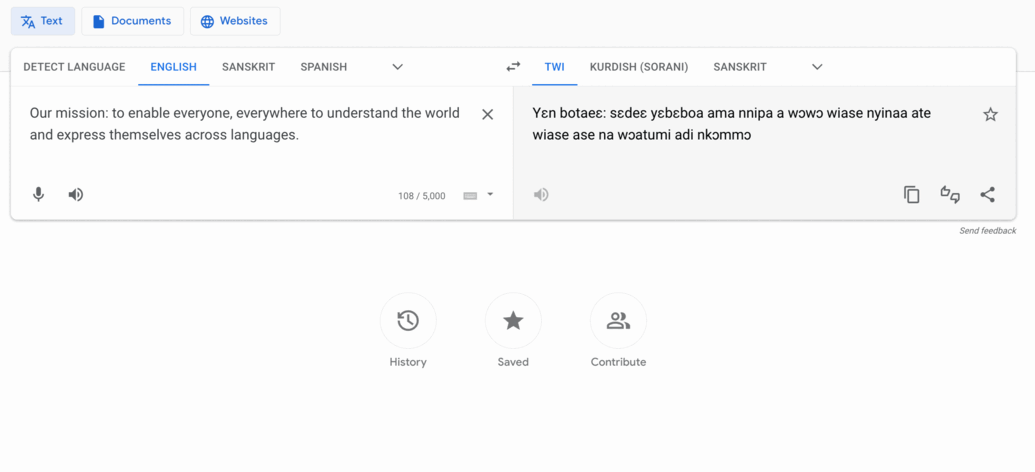Millions of people around the world use Google Translate, whether in a verbal conversation, or while navigating a menu or reading a webpage online. Translate learns from existing translations, which are most often found on the web. Languages without a lot of web content have traditionally been challenging to translate, but through advancements in our machine learning technology, coupled with active involvement of the Google Translate Community, we’ve added support for five languages: Kinyarwanda, Odia (Oriya), Tatar, Turkmen and Uyghur. These languages, spoken by more than 75 million people worldwide, are the first languages we’ve added to Google Translate in four years, and expand the capabilities of Google Translate to 108 languages.
Translate supports both text translation and website translation for each of these languages. In addition, Translate supports virtual keyboard input for Kinyarwanda, Tatar and Uyghur. Below you can see our team motto, “Enable everyone, everywhere to understand the world and express themselves across languages,” translated into the five new languages.
 Google Translate adds 110 new languages using AI, breaking down communication barriers for millions around the world.
Google Translate adds 110 new languages using AI, breaking down communication barriers for millions around the world.
 Google Translate adds 110 new languages using AI, breaking down communication barriers for millions around the world.
Google Translate adds 110 new languages using AI, breaking down communication barriers for millions around the world.

